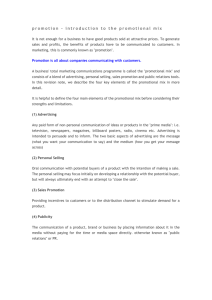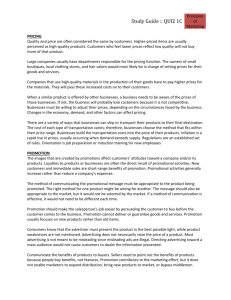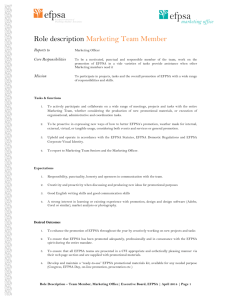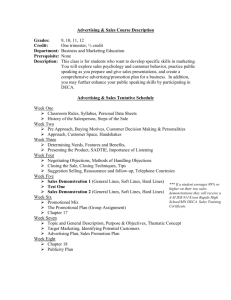No01AdvertisingAndPromotionalActivities.doc
advertisement
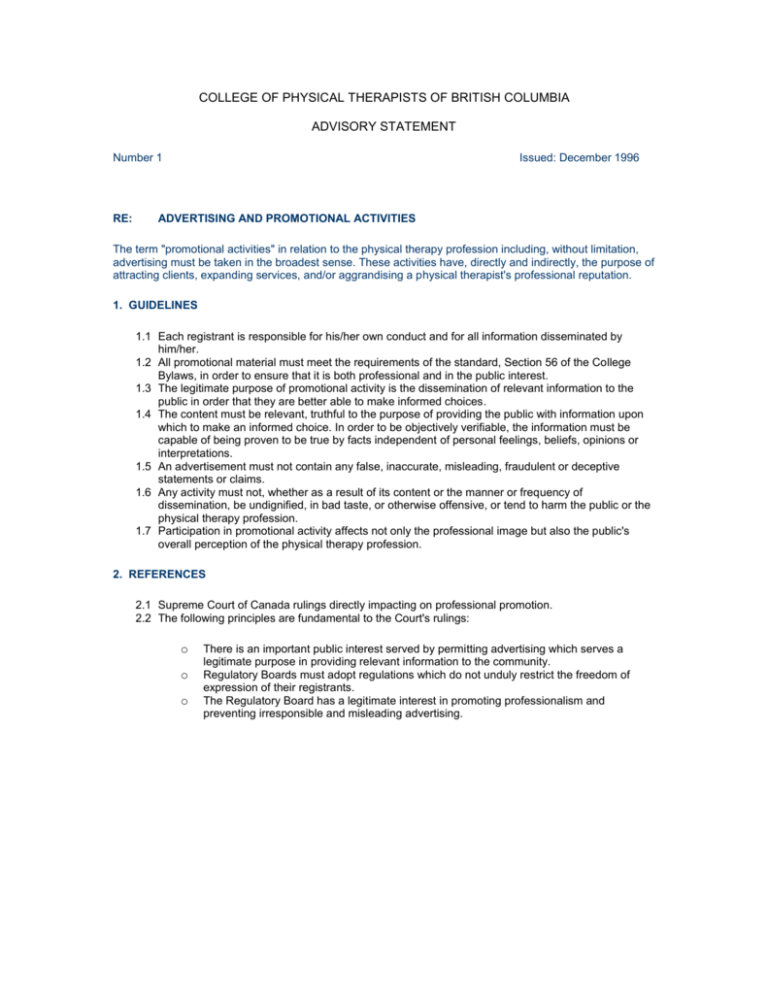
COLLEGE OF PHYSICAL THERAPISTS OF BRITISH COLUMBIA ADVISORY STATEMENT Number 1 RE: Issued: December 1996 ADVERTISING AND PROMOTIONAL ACTIVITIES The term "promotional activities" in relation to the physical therapy profession including, without limitation, advertising must be taken in the broadest sense. These activities have, directly and indirectly, the purpose of attracting clients, expanding services, and/or aggrandising a physical therapist's professional reputation. 1. GUIDELINES 1.1 Each registrant is responsible for his/her own conduct and for all information disseminated by him/her. 1.2 All promotional material must meet the requirements of the standard, Section 56 of the College Bylaws, in order to ensure that it is both professional and in the public interest. 1.3 The legitimate purpose of promotional activity is the dissemination of relevant information to the public in order that they are better able to make informed choices. 1.4 The content must be relevant, truthful to the purpose of providing the public with information upon which to make an informed choice. In order to be objectively verifiable, the information must be capable of being proven to be true by facts independent of personal feelings, beliefs, opinions or interpretations. 1.5 An advertisement must not contain any false, inaccurate, misleading, fraudulent or deceptive statements or claims. 1.6 Any activity must not, whether as a result of its content or the manner or frequency of dissemination, be undignified, in bad taste, or otherwise offensive, or tend to harm the public or the physical therapy profession. 1.7 Participation in promotional activity affects not only the professional image but also the public's overall perception of the physical therapy profession. 2. REFERENCES 2.1 Supreme Court of Canada rulings directly impacting on professional promotion. 2.2 The following principles are fundamental to the Court's rulings: o o o There is an important public interest served by permitting advertising which serves a legitimate purpose in providing relevant information to the community. Regulatory Boards must adopt regulations which do not unduly restrict the freedom of expression of their registrants. The Regulatory Board has a legitimate interest in promoting professionalism and preventing irresponsible and misleading advertising.


